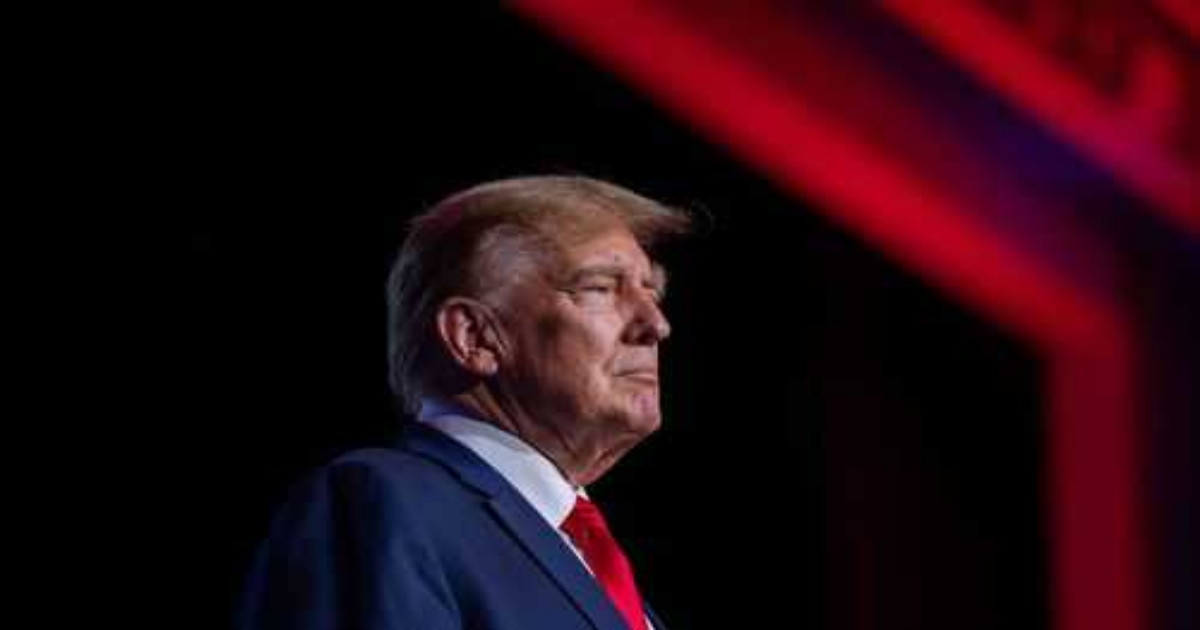Trump to impose sweeping reciprocal tariffs, sparking market volatility
President Donald Trump is set to introduce significant reciprocal tariffs on various imports, causing market instability and concerns about higher prices and lower wages.

President Donald Trump is set to make his most significant economic move yet on Wednesday by imposing billions in tariffs on imports ranging from pharmaceuticals to cars with the aim of revitalizing American manufacturing.Experts warn that these tariffs could lead to higher prices and lower wages, but Trump argues they will bring jobs and wealth back to America.”On Wednesday, it will be Liberation Day in America, as President Trump has so proudly dubbed it,” said Karoline Leavitt, the White House press secretary.However, key details such as the duration and rates of these tariffs remain unclear, causing uncertainty in the markets and increasing anxiety.”The tariffs will be far more generous than those countries were to us,” Trump said.Consumer confidence has dropped to a 12-year low, and the S&P and NASDAQ are experiencing their worst quarters since the pandemic.”This investing is a game we play over decades. It’s not week to week, month to month or even year to year. So maintaining that long-term perspective is really, really important,” Bankrate.com’s Greg McBride said.Financial advisers recommend reviewing investment portfolios, especially if you are heavily invested in stocks. “It might be time to take some of those profits off the table and more broadly diversify our portfolios by including other categories of assets,” Financial Planning Association Board President Paul Brahim said.They also advise that timing is crucial for big-ticket purchases that could face stiff tariffs, such as cars.”The first question you might ask is do you want it or do you need it,” Brahim said. “We might also consider either making major purchases before tariffs hit or waiting until after they settle out and trade agreements have been renegotiated.”Over the weekend, Trump said he does not care if foreign car companies raise prices due to tariffs because it would mean more people would buy American cars. Yale’s Budget Lab estimates that this trade war could cost the average U.S. household between $2,700 and $3,400 annually.White House trade adviser Peter Navarro said the auto tariffs would raise $100 billion annually, and the other tariffs would bring in about $600 billion per year, totaling approximately $6 trillion over 10 years.
WASHINGTON —President Donald Trump is set to make his most significant economic move yet on Wednesday by imposing billions in tariffs on imports ranging from pharmaceuticals to cars with the aim of revitalizing American manufacturing.
Experts warn that these tariffs could lead to higher prices and lower wages, but Trump argues they will bring jobs and wealth back to America.
“On Wednesday, it will be Liberation Day in America, as President Trump has so proudly dubbed it,” said Karoline Leavitt, the White House press secretary.
However, key details such as the duration and rates of these tariffs remain unclear, causing uncertainty in the markets and increasing anxiety.
“The tariffs will be far more generous than those countries were to us,” Trump said.
Consumer confidence has dropped to a 12-year low, and the S&P and NASDAQ are experiencing their worst quarters since the pandemic.
“This investing is a game we play over decades. It’s not week to week, month to month or even year to year. So maintaining that long-term perspective is really, really important,” Bankrate.com’s Greg McBride said.
Financial advisers recommend reviewing investment portfolios, especially if you are heavily invested in stocks.
“It might be time to take some of those profits off the table and more broadly diversify our portfolios by including other categories of assets,” Financial Planning Association Board President Paul Brahim said.
They also advise that timing is crucial for big-ticket purchases that could face stiff tariffs, such as cars.
“The first question you might ask is do you want it or do you need it,” Brahim said. “We might also consider either making major purchases before tariffs hit or waiting until after they settle out and trade agreements have been renegotiated.”
Over the weekend, Trump said he does not care if foreign car companies raise prices due to tariffs because it would mean more people would buy American cars. Yale’s Budget Lab estimates that this trade war could cost the average U.S. household between $2,700 and $3,400 annually.
White House trade adviser Peter Navarro said the auto tariffs would raise $100 billion annually, and the other tariffs would bring in about $600 billion per year, totaling approximately $6 trillion over 10 years.
